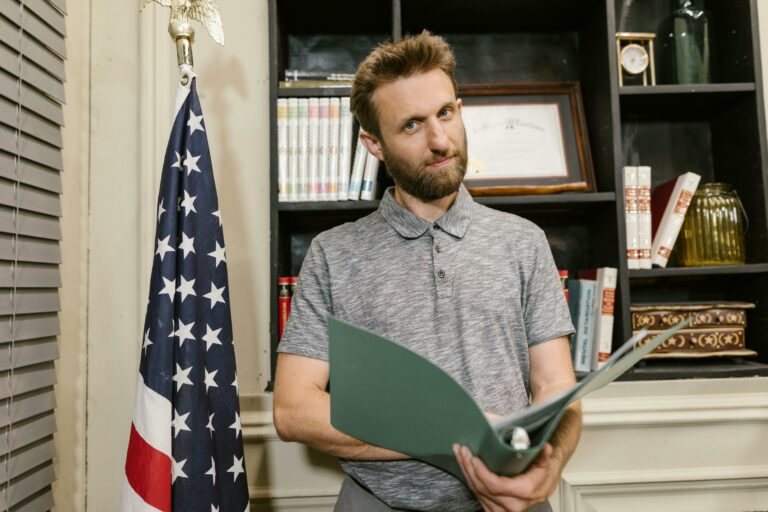The New York City Sick Time Law provides an essential safety net for part-time employees, ensuring they have the right to accrue and use paid sick leave. Under this legislation, part-time workers earn one hour of paid sick leave for every thirty hours worked, up to a maximum of forty hours annually. This law, which aims to foster workplace equality and safeguard worker health, also offers job protection in instances of illness. However, how does this legislation impact salary and benefits? What obligations does it impose on employers, and what exceptions exist? These are questions that warrant further exploration.
Understanding NYC’s Sick Time Law
Enacted with the intention of safeguarding the rights of the workforce, New York City’s Sick Time Law is a pivotal piece of legislation that part-time employees should thoroughly comprehend. This law, grounded in the principles of employee rights and equality, ensures that workers, regardless of their employment status, receive adequate provisions for paid time off when dealing with health-related issues.
The law stipulates that part-time employees are entitled to accrue paid sick leave on the basis of hours worked, thereby guaranteeing that even the most vulnerable employees are covered. Through this, it addresses the longstanding issue of part-time workers being overlooked concerning employee rights, especially regarding paid time off for sickness.
The NYC Sick Time Law is more than just mere legislation – it is a testament to the city’s commitment to its workforce, and an affirmation of the rights of part-time workers. It serves as a reminder that all employees, regardless of their contractual status, have the right to paid time off for sickness, promoting health, wellbeing, and fairness in the workplace.
Eligibility Criteria for Part-Time Employees
Building upon our understanding of the NYC Sick Time Law, it is imperative to discuss how it applies to different types of employees, particularly those working part-time. Part-time eligibility for sick time rights under this law is determined by several key factors.
It is worth noting that the NYC Sick Time Law is designed to protect all employees, regardless of their employment status, including full-time, part-time, and temporary workers. Part-time employees, just like their full-time counterparts, are entitled to sick leave based on the number of hours they work.
To qualify for sick time rights, part-time employees must work a minimum of 80 hours per calendar year in New York City. This includes all employees, regardless of immigration status. Moreover, the law applies to businesses of all sizes, whether they have one employee or thousands.
Once part-time eligibility is met, employees can use sick time for their care or a family member’s care. However, the law does not mandate employers to pay for sick time unless they have five or more employees.
Accumulation of Sick Leave Hours
Under the provisions of the NYC Sick Time Law, the accumulation of sick leave hours is an important aspect that part-time employees must grasp. The process, known as sick leave accrual, commences when an employee starts their employment. For every 30 hours worked, a part-time employee accrues one hour of paid sick leave. This accrual happens in increments, not in a lump sum, and continues throughout the employee’s tenure.
Nevertheless, it is worth mentioning that the accumulation of sick leave hours has a cap. Part-time employees can accrue up to 40 hours of sick leave in a calendar year. This limit guarantees a fair and uniform application of the law across different employment structures and work schedules.
The notion of sick leave rollover is another vital aspect under the NYC Sick Time Law. If a part-time employee does not utilize all their accrued sick leave in a given year, the remaining hours can roll over to the next year. However, the maximum amount of sick leave that an employee can use in a single year remains at 40 hours, regardless of the total hours rolled over. This policy promotes responsible use of sick leave while protecting employee rights.
Utilizing Sick Leave: The Process
Having accrued sick leave, understanding its proper utilization under the NYC Sick Time Law is essential for part-time employees. A clear understanding of sick leave policies can greatly impact the course of action taken during periods of illness. We will now explore the specific steps involved in sick leave utilization, ensuring employees are fully equipped to exercise their rights in an efficient manner.
Understanding Sick Leave Policies
When it comes to utilizing sick leave, it is important for part-time employees in New York City to gain a thorough understanding of the process involved. The city’s sick time law is designed to protect employee rights and guarantee that workers can take care of their health without fear of losing their jobs.
Sick time management is a critical aspect of this law. Employers are required to keep precise tracking of the hours worked by part-time employees and the accrued sick leave. This allows both the employer and employee to know exactly how much sick time is available at any given time.
Understanding your protection under this law is also essential. Employees cannot be terminated, demoted, or otherwise penalized for using their sick leave. Any retaliation against an employee for utilizing sick leave is a violation of the law and can lead to severe penalties for the employer.
Sick Leave Utilization Steps
Building on the foundational knowledge of New York City’s sick time law, it is crucial to comprehend the steps involved in using sick leave. The process involves careful sick time tracking, submitting an adequate notice, and obtaining sick day approval.
- Sick Time Tracking: The first step towards utilizing sick leave involves tracking the accrued sick time. It is the responsibility of both the employee and the employer to maintain an accurate record of accrued and used sick time. This will help to avoid any discrepancies when the need for sick time arises.
- Submitting Notice: Once an employee has monitored their sick time and realizes that they will need to use it, they must submit a notice to their employer as soon as possible. This notice should be given at least seven days in advance if the need for leave is foreseeable. If not, it should be provided as soon as practicable.
- Sick Day Approval: Upon receipt of the notice, the employer will review it and grant sick day approval. Employers cannot reject an eligible employee’s request for sick leave unless it violates the NYC sick time law.
Understanding these steps guarantees a smooth process when using sick leave, aligning with both employee rights and employer obligations.
Sick Leave and Job Security
Job security, a fundamental concern for many workers, is directly tied to the New York City Sick Time law for part-time employees. This law guarantees job protection for part-time employees when they are unable to work due to illness, thereby preserving their income and employment status.
Under this law, part-time employees have the right to sick pay, providing them with financial stability during their period of illness. The law also safeguards employees from retaliatory actions by employers for using their sick leave. This includes any form of dismissal, demotion, or denial of promotion, all of which can greatly impact an employee’s livelihood and future career prospects.
Moreover, the NYC Sick Time law stipulates that employers cannot force employees to find a replacement to cover their shifts during their sick leave. This protects employees from the undue stress of ensuring business continuity during their period of ill-health.
Documentation Requirements for Sick Leave
In the context of NYC’s Sick Time Law for part-time workers, it is important to comprehend the complexities of documentation requirements for sick leave. This involves understanding the specific sick leave policies, identifying the essential documents needed for sick leave, and grasping the protocol for submitting these documents. A clear understanding of these factors can guarantee compliance with regulations, prevent possible disputes, and safeguard the rights of both employers and part-time workers.
Understanding Sick Leave Policies
When exploring the landscape of New York City’s sick leave policies, understanding the documentation requirements for sick leave is essential. It’s a significant aspect of sick time management and directly impacts employee rights. Employers must foster clear guidelines about the procedures for sick leave to avoid confusion and potential disputes.
- One key factor is to define what constitutes adequate documentation for sick leave. This helps in curbing sick leave abuse and guarantees that the right to sick leave is exercised responsibly.
- Second, the policy should outline the repercussions of not providing proper documentation, such as disciplinary actions. This will discourage employees from misusing their rights to sick leave.
- Finally, the sick leave policy should address the rights of the employees, making sure they are aware of their entitlements and obligations.
Required Sick Leave Documents
Sailing through the complexities of the necessary sick leave documents can seem like a challenging task for both the employer and the employee. However, understanding these requirements is vital to ensuring compliance with NYC’s sick time law.
Sick leave forms serve as the primary tool for documenting sick leave. These forms typically require details such as the employee’s personal information, duration of the leave, and the reason for the absence. Accuracy in filling out these forms is essential, as they provide a written record of the employee’s sick leave history.
The necessary documentation often extends beyond sick leave forms. In some cases, it may include medical certificates or doctor’s notes, particularly for extended periods of absence. These documents provide validation of the employee’s health condition and the necessity for their leave. They also aid in fostering transparency between the employer and the employee, and in ensuring that the sick leave policy is not misused.
Understanding the documentation requirements for sick leave is an integral aspect of NYC’s sick time law. It helps maintain a fair and supportive work environment, where the rights of part-time employees are respected and upheld.
Submission of Sick Leave
Although it is vital to understand what documents are necessary for sick leave, knowing how and when to submit them is equally crucial. Proper submission of sick leave paperwork not only guarantees compliance with NYC sick leave laws, but also helps employers manage their workforce effectively and maintain uninterrupted operations.
The process can be broken down into three key steps:
- Sick Leave Notification: The very first step involves informing the employer about the sickness. The employee must provide a notice as soon as possible. The employer may require the notice to be in writing for record-keeping purposes.
- Sick Leave Verification: After the notification, the employee should provide a verification of illness. This may include a letter from a healthcare provider, or any other suitable documentation.
- Submission of Documentation: The final step is to submit the sick leave documents to the employer. The submission should be done promptly, following the employer’s specified timeline and method, be it email, physical mail, or an online portal.
Following these steps helps to secure that sick leave is managed effectively and compliantly, maintaining a harmonious work environment for all.
Impact on Salary and Benefits
The implementation of the NYC Sick Time Law has a significant impact on the salary and benefits structure for part-time employees in New York City. This law ensures that part-time employees do not face a salary impact; they are entitled to paid sick leave at their regular rate of pay. It safeguards their income during periods of illness, allowing them to focus on their health without financial stress.
The benefits impact is also remarkable. Part-time employees previously overlooked in sick leave benefits now have a level playing field with their full-time counterparts. The law mandates equivalent sick leave benefits irrespective of the number of hours worked per week. This reform not only improves the financial stability of part-time employees but also enhances their overall job security and satisfaction.
Moreover, the NYC Sick Time law also contributes towards fostering a healthier work environment. By allowing part-time employees to take necessary time off without the fear of losing their salary or benefits, it discourages them from coming to work when they are unwell, reducing the spread of contagious diseases. Therefore, the law significantly enhances the quality of life for part-time employees and contributes positively to public health.
Exceptions to the NYC Sick Time Law
Despite the broad encompassing nature of the NYC Sick Time Law, there are certain exceptions to its applicability. These exceptions are largely established to guarantee the fair distribution of benefits among employees, without placing unnecessary burdens on employers. Understanding these exceptions can help both employers and employees navigate situations that involve paid time off due to sickness or unforeseen circumstances.
- Small Businesses: Businesses with fewer than five employees and a net income of less than $1 million in the previous tax year are exempt from providing paid sick leave. Instead, they are required to provide unpaid sick leave.
- New Employees: Employees who have not yet worked 80 hours in a calendar year are not eligible for paid sick leave. However, they start accruing sick time from their first day of employment.
- Certain Industries: Employees in certain industries, such as federal, state, and local government workers, are not covered by the NYC Sick Time Law.
Employer Obligations Under the Law
Numerous responsibilities fall on the shoulders of employers under the NYC Sick Time Law. These obligations are designed to guarantee employer compliance with the law and to safeguard employee rights.
Employers are required to provide up to 40 hours of paid sick leave per calendar year to their part-time employees. The accrual of sick time begins from the commencement of employment or the effective date of the law, whichever is later, at a rate of one hour of sick time for every 30 hours worked.
Furthermore, employers are obliged to inform employees about their rights under the law. This includes providing written notice about the right to sick time, the accrual, and use of sick time, the calendar year of the employer, and the right to be free from retaliation.
Employers must also maintain records documenting their compliance with these requirements for a period of three years. Non-compliance with these obligations can lead to serious penalties including fines and potential lawsuits.
The NYC Sick Time Law places a significant burden on employers, but these obligations are essential in safeguarding the health and wellbeing of part-time workers in New York City.
Seeking Legal Help: When and Why
While employers bear significant responsibilities under the NYC Sick Time Law, it’s equally important for employees to be aware of their rights and what actions to take should they face a violation. An important part of rights protection is knowing when to seek legal advice.
- Violation of Rights: If an employer refuses to provide the required sick leave or retaliates against the employee for using the provided sick leave, it’s time to contemplate legal assistance. This includes any form of punishment such as dismissal, demotion, or reduction of wages.
- Inadequate Response to Complaints: If an employee has made a complaint about non-compliance with the law within the organization, and the employer has not addressed the issue, the employee should consider seeking legal counsel.
- Lack of Awareness About the Law: It is essential for employees to understand their rights under the NYC Sick Time Law. If an employee is unsure about their rights or the employer’s obligations, a legal consultation can provide clarity.
In all these scenarios, legal assistance can guide employees on the next steps to guarantee their rights are protected. The NYC Sick Time Law is there to protect employees, and awareness of this law is a fundamental step towards its implementation.
Frequently Asked Questions
Are Internships or Apprenticeships Covered Under the NYC Sick Time Law?
Yes, both internships and apprenticeships are covered under the NYC Sick Time Law, ensuring that individuals in these positions receive the same sick leave benefits as full-time and part-time employees.
How Does the Law Apply to Remote or Telecommuting Employees?
Remote employees, regardless of their location, are covered under NYC sick time law if their primary workplace is in NYC. Telecommuting regulations guarantee these employees receive their entitled sick time benefits provided by the law.
Is There a Maximum Limit on the Sick Leave Hours One Can Accumulate?
Under the Sick Leave Law, there’s no maximum limit to sick leave rollover. However, employers can set an accrual limit, restricting use to 40 hours of sick leave per calendar year.
Can Unused Sick Leave Hours Be Carried Over to the Next Year?
Yes, under the Sick Time policy, unused sick leave hours can be rolled over to the subsequent year. However, there may be accrual limitations depending on the specifics of the employer’s sick leave policy.
Does This Law Apply to Part-Time Workers Employed by Non-Profit Organizations?
Yes, the NYC Sick Time Law applies to part-time workers in non-profit organizations, just like it does to independent contractors and gig economy workers, ensuring all receive essential benefits regardless of their employment status.





